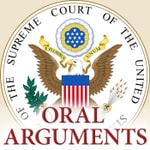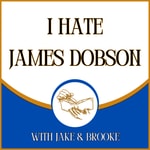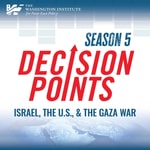The Tikvah Podcast – Details, episodes & analysis
Podcast details
Technical and general information from the podcast's RSS feed.

The Tikvah Podcast
Tikvah
Frequency: 1 episode/9d. Total Eps: 447

Recent rankings
Latest chart positions across Apple Podcasts and Spotify rankings.
Apple Podcasts
🇨🇦 Canada - judaism
28/07/2025#36🇬🇧 Great Britain - judaism
28/07/2025#53🇩🇪 Germany - judaism
28/07/2025#53🇺🇸 USA - judaism
28/07/2025#10🇨🇦 Canada - judaism
27/07/2025#29🇬🇧 Great Britain - judaism
27/07/2025#92🇩🇪 Germany - judaism
27/07/2025#35🇺🇸 USA - judaism
27/07/2025#15🇫🇷 France - judaism
27/07/2025#93🇨🇦 Canada - judaism
26/07/2025#39
Spotify
No recent rankings available
Shared links between episodes and podcasts
Links found in episode descriptions and other podcasts that share them.
See allRSS feed quality and score
Technical evaluation of the podcast's RSS feed quality and structure.
See allScore global : 53%
Publication history
Monthly episode publishing history over the past years.
Gary Saul Morson on Alexander Solzhenitsyn and His Warning to America
vendredi 30 août 2024 • Duration 39:25
On June 8, 1978, Harvard University invited the Soviet dissident Alexander Solzhenitsyn to deliver a major commencement address. Solzhenitsyn was, by this time, a world famous figure who won the Nobel Prize in Literature in 1970. Some two and a half decades earlier, while serving in the Soviet army during World War II, he was arrested and sent to the Gulag for criticizing the Soviet premier Joseph Stalin in a private letter. He was imprisoned there for nearly a decade, during which he underwent a profound spiritual, religious, philosophical reorientation and awakening, eventually reflecting on his experiences in a major study of Soviet Gulag system, The Gulag Archipelago.
In time, he was freed from the camp but exiled from the Soviet Union. He settled in America, and there, was thought perhaps to be a valuable critic of the Soviet system. But the fact that he was a critic of Soviet repression and the soul-deforming debasement that Russians were forced to endure did not necessarily mean that he would endorse the American system in which he had found his freedom.
When Harvard invited Solzhenitsyn to address their graduating classes that year, probably weren't expecting so thoroughgoing a critique civic, philosophical, and moral as the one he delivered, warning Americans about deep-seated tendencies of mind that could lead their nation into the very sort of societal sickness from which he had just escaped. This week, as students return to campus, Solzhenitsyn’s analysis of America’s vulnerabilities may still be relevant. To think about that, host Jonathan Silver here speaks with the literature scholar Gary Saul Morson, author of a recent essay called “Solzhenitsyn Warned Us".
Adam Kirsch on Settler Colonialism
vendredi 23 août 2024 • Duration 28:25
Israel’s critics today like to argue that the country is illegitimate because it is the product of what they call settler colonialism. They consider non-Jewish Arab peoples the native inhabitants of the land—inhabitants who were displaced by the appearance of Jewish immigrants over the last 150 years. The great colonial moment was capped in 1948, when the Jews established political sovereignty in the state of Israel; then, subsequent wars, including and especially the Six Day War of 1967, further expanded and entrenched that moment.
According to this sort of analysis, Israel is always and forever illegitimate. Much the same is seen as true of America, which was not only illegitimate at the moment it seized native lands, but is still illegitimate, and will always be illegitimate. This dynamic is captured in a comment by Patrick Wolfe, a frequently quoted Australian scholar of settler colonialism: “invasion is a structure, not an event.”
This worldview establishes a moral hierarchy, draws political alliances, establishes political adversaries, and has been at the root of the ideological assault on Israel and its allies. It’s an idea that the critic and writer Adam Kirsch explores in his new book, On Settler Colonialism, published recently by W.W. Norton & Company. Here he joins host Jonathan Silver for a discussion of his book and the controversy around Israel.
Musical selections in this podcast are drawn from the Quintet for Clarinet and Strings, op. 31a, composed by Paul Ben-Haim and performed by the ARC Ensemble.
Shlomo Brody on What the Jewish Tradition Says about Going to War
jeudi 20 juin 2024 • Duration 37:31
Last month, host Jonathan Silver spoke with the rabbi Shlomo Brody about Jewish military ethics. They spoke, in particular, about the Jewish ethical tradition’s conception of right conduct once a war has begun: how one ought to calibrate the force of a maneuver to the threat it is meant to neutralize, how one ought to balance collateral damage and civilian casualties with force protection, and other related questions. This week, Brody joins Silver once again to discuss the reasons nations go to war—that is, to discern in Jewish history, Jewish text, and the drama of modern Zionism, the ethical parameters of thinking about going to war in the first place. As with their previous conversation, this conversation is informed by Brody’s recently published book, Ethics of Our Fighters.
Musical selections in this podcast are drawn from the Quintet for Clarinet and Strings, op. 31a, composed by Paul Ben-Haim and performed by the ARC Ensemble.
Chaim Saiman on the Roots and Basis of Jewish Law (Rebroadcast)
vendredi 14 juin 2024 • Duration 47:23
Jewish communities have just concluded the celebration of Shavuot, a pilgrimage festival in times of the Temple and the moment when, fifty days after the Jewish people’s exodus from Egypt, God revealed the Ten Commandments to Moses. Those commandments form the foundation of the many rules and obligations inflected throughout the Jewish tradition. Indeed, after thousands of years of Jewish history, observant Jewish lives continue to be structured by what is known as halakhah, Jewish law.
What is halakhah? In 2018, the rabbi Mark Gottlieb sat down to answer that question with Chaim Saiman, one of the world’s foremost scholars of Jewish law and the author of a then newly published book called Halakhah: The Rabbinic Idea of Law. This week, in honor of the Jewish holiday that celebrates lawgiving, we bring you a rebroadcast of their discussion.
Musical selections in this podcast are drawn from the Quintet for Clarinet and Strings, op. 31a, composed by Paul Ben-Haim and performed by the ARC Ensemble.
Elliott Abrams on American Jewish Anti-Zionists
vendredi 7 juin 2024 • Duration 38:45
Since the attacks of October 7 and since the Gaza war began, a small but vocal segment of American Jews have joined in with the anti-Israel protests convulsing American cities and campuses. What are their ideas and where do they come from?
Elliott Abrams is the author of If You Will It, a book coming this fall on Jewish peoplehood. Also the chairman of Tikvah and a regular Mosaic writer, he’s been an observer of American Jewish life for a long time. In his view, the Jewish turn against Israel in America today is vastly different than the usual critiques one hears every Shabbat in every synagogue across the country. In other words, it’s not that these Jews don’t like the Israeli prime minister or other members of his governing coalition, or certain policies of the government or trends in Israeli culture. It's that they see Israel as a moral encumbrance on the Jewish conscience, and imagine that the Jews would be better off without statehood altogether. He recently developed this argument in an essay in Fathom called “American Jewish Anti-Zionist Diasporism: A Critique,” and here elaborates on it with host Jonathan Silver.
Musical selections in this podcast are drawn from the Quintet for Clarinet and Strings, op. 31a, composed by Paul Ben-Haim and performed by the ARC Ensemble.
Andrew Doran on Why He Thinks the Roots of Civilization Are Jewish
vendredi 31 mai 2024 • Duration 50:11
Traditional readers of the Hebrew Bible, reinforced by rabbinic commentary, condemn the bloodlust, cruelty, exploitation of the weak, and exaltation of the strong that is on display in the Amalekite attack on Israel in the book of Exodus. But it’s not the Amalekites, the nomadic enemies of the Israelites, who are shocking for their sacralized violence; it’s the Israelites who are shocking for their ability to quiet that darker, natural impulse, and live out a different moral code.
That is the thought that frames a recent essay called “Civilization Is from the Jews,” written by Andrew Doran, a senior research fellow with the Philos Project. Here, with host Jonathan Silver, Doran discusses his contention that what we think of as “civilization” came into the drama of human history in no other way than through God’s covenantal promise with Abraham and his children.
Musical selections in this podcast are drawn from the Quintet for Clarinet and Strings, op. 31a, composed by Paul Ben-Haim and performed by the ARC Ensemble.
Haisam Hassanein on How Egypt Sees Gaza
vendredi 24 mai 2024 • Duration 35:59
A stable if somewhat cold peace has endured between Egypt and Israel for nearly fifty years, a peace that includes serious diplomatic and security cooperation. Much of that has to do with Gaza. After Hamas took control of Gaza in 2007, Israel and Egypt jointly imposed a blockade and began to control its borders, since each had its own reasons to fear Hamas. Hamas was, after all, an outgrowth of the very Muslim Brotherhood that threatened the Egyptian government’s rule.
Since October 7, Egypt has catapulted itself into a role as a key mediator between Israel and Hamas. The country’s leader, Abdel Fattah al-Sisi, has seen the crisis as a lever he could use to grow his country’s economy and restore some of its diminishing political clout. Has that worked?
Haisam Hassanein is an analyst at the Foundation for Defense of Democracies. In this podcast, he joins host Jonathan Silver to think through how Cairo assesses the war on its border, how it sees its own interests there, and what lasting consequences Israel’s war with Hamas may have on the future of Egypt’s relations with the Jewish state.
In the last few days, it's been widely reported that Egyptian mediators were responsible for surreptitiously changing the terms of a recent hostage negotiation between Israel and Hamas, thereby deceiving the American and Israeli negotiators. That news broke after the two recorded their conversation, and so while they won’t discuss it explicitly, this news can be better understood in light of how Hassanein describes how Egypt understands its own national interests.
Musical selections in this podcast are drawn from the Quintet for Clarinet and Strings, op. 31a, composed by Paul Ben-Haim and performed by the ARC Ensemble.
Asael Abelman on the History of “Hatikvah”
vendredi 17 mai 2024 • Duration 40:01
Israel’s national anthem, “Hatikvah,” has a long and poignant history that traces back to a poem originally written by Naftali Herz Imber called “Tikvateinu.” This week, to mark the 76th anniversary of Israel’s founding, the historian and author Asael Abelman joins Mosaic’s editor Jonathan Silver to investigate that history. Together, they look at the biblical sources and national aspirations of the poem, examine some of the contemporary discussion surrounding it, and take stock of some of its mysteries and paradoxes. Foremost among those paradoxes is the fact that the state of Israel’s anthem is a song of longing for the day that there will be such a thing as a state of Israel.
Musical selections in this podcast are drawn from the Quintet for Clarinet and Strings, op. 31a, composed by Paul Ben-Haim and performed by the ARC Ensemble.
Shlomo Brody on Jewish Ethics in War
jeudi 9 mai 2024 • Duration 47:27
After a long delay, the Israeli military’s advance into Rafah, the city in southern Gaza that is the last stronghold of Hamas’s fighting force and that now also hosts many civilian refugees from the rest of Gaza, may now be underway. Many in the U.S. are concerned that an Israeli push into Rafah will incur high numbers of civilian casualties. How does and should Israel think about that possibility?
The rabbi and scholar Shlomo Brody is the author of a new volume on Jewish military ethics, Ethics of Our Fighters. It is traditional in the intellectual and philosophical field of just-war theory to draw a distinction between the ethics of going to war and the ethics of fighting in war. Here, Brody and host Jonathan Silver discuss the latter subject—ethics in war—as it is seen through the Jewish tradition and the historical experience of the Israeli military.
Musical selections in this podcast are drawn from the Quintet for Clarinet and Strings, op. 31a, composed by Paul Ben-Haim and performed by the ARC Ensemble.
Ruth Wisse on the Explosion of Anti-Israel Protests on Campus
vendredi 3 mai 2024 • Duration 51:39
Anti-Israel campus activism has never been more popular or unpleasant than it is right now. In years past, much of this activism was mixed up with nods to the desire for peace and a two-state solution that would allow for Palestinians to enjoy their own sovereignty alongside a secure Israel. That isn’t happening now. It certainly isn’t what is meant by the chants, now common at the most prestigious universities in the United States, that call for the globalization of the intifada or that give voice to the delusion that Israel can be unborn.
To analyze the protests, the protestors, and their slogans, Ruth Wisse, the scholar of Yiddish and Jewish literature and history, and the author of books including Jews and Power, joins Jonathan Silver.
Musical selections in this podcast are drawn from the Quintet for Clarinet and Strings, op. 31a, composed by Paul Ben-Haim and performed by the ARC Ensemble.









